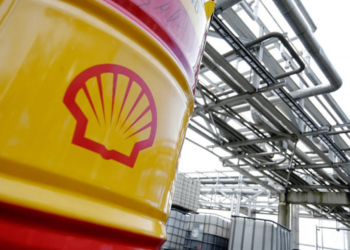The Management of Chevron Nigeria Limited (CNL), declared that it has no plans to migrate Nigerian jobs outside the country.
According to News Agency of Nigeria (NAN), this clarification was made in a statement by Chevron’s General Manager for Policy, Government, and Public Affairs, Mr Esimaje Brikinn, on Friday, October 2, 2020.
READ: Chevron crisis deepens, as workers call for MD’s removal, facilities shut down
Brikinn disclosed this, following an allegation by the Petroleum and Natural Gas Senior Staff Association of Nigeria (PENGASSAN), that Chevron Nigeria Limited has concluded plans to relocate jobs outside the country.
He said, however, that the company was only reviewing its manpower requirements in the light of the changing business environment.
According to him, the new organisational structure will require approximately 25% reduction in the workforce across the various levels of its organisation.
READ: Chevron crisis deepens as NUPENG issues new threat
Brikinn in his statement said, “The aim is to have a business that is competitive, and have an appropriately sized organisation with improved processes. This will increase efficiency and effectiveness, retain value, reduce cost, and generate more revenue for the Federal Government of Nigeria,
“We have prospects for our company in Nigeria; however, we must make the necessary adjustments, in light of the prevailing business climate. We need everyone’s support to get through these tough times stronger, more efficient, and more profitable, in order to sustain the business,”
The Chevron spokesman also said that the oil major was in agreement with both its Joint Venture partners, including NNPC and the Department of Petroleum Resources (DPR) on the process.
READ: Chevron crisis deepens as NUPENG issues new threat
“We are actively engaging our workforce, to ensure they understand why this is being done. We will continue to consistently engage all relevant stakeholders, including the leadership of the employee unions, as we continue this process of business optimization,” he concluded.
Earlier, the Petroleum and Natural Gas Senior Staff Association of Nigeria, Chevron Branch, had accused CNL of sacking 600 Nigerian workers, amidst plans to relocate jobs to America.
Its Branch Chairman, Mr Ote Oyegbanren, and Secretary, Mr Lavin Aghaunor, in a statement said the workers being sacked were lower cadre employees, whose salaries were negligible when compared with that paid to their American expatriate counterparts.
READ: How reforms by the Nigeria Customs are aiding e-commerce
The national PENGASSAN, however, appealed to Chevron Management to suspend the process, and allow both parties to reach an agreement on an amicable voluntary separation exercise, such that workers may opt to exit. This current conciliatory offer was rebuffed.
Nairametrics had earlier reported that Chevron Nigeria Limited was planning to reduce its workforce by as much as 25%, in a bid to align with the changing business environment.


















